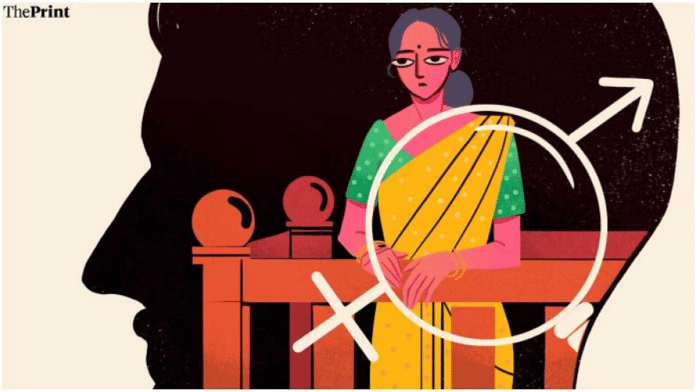New Delhi: Concealing one’s marital history or discrepancies as to salary goes to the heart of free consent and makes a marriage voidable, the Delhi High Court held last week, upholding a family court order that granted divorce on grounds of fraud under the Hindu Marriage Act.
“This was a detail that the Respondent [wife] was entitled to know before making the life-altering decision to marry the Appellant. Its concealment strikes at the very core of free and informed consent…,” the bench of Justices Anil Kshetrapal and Harish Vaidyanathan Shankar said while hearing the husband’s appeal against a January order from the Rohini family court.
The family court had granted divorce after finding that the husband claimed to be ‘never married’ on his Shaadi.com profile, despite having a previous marriage and a child. He also misstated his salary. The husband argued that the wife knew of his past marriage, saying he had disclosed it during a coffee meeting.
However, the HC has rejected the husband’s appeal and upheld the divorce holding the misrepresentations were critical to the wife’s decision to marry. Since consent was obtained by fraud, the marriage is voidable, it said.
Under the Hindu Marriage Act, a marriage is voidable if consent was obtained by fraud or suppression of material facts. The HC has said that this includes misrepresentations about marital history and salary figures. ThePrint explains.
The law as to Hindu marriages in India is codified in the Hindu Marriage Act, 1955. Section 12 of the Act deals with voidable marriages, i.e., marriages which may be set aside by a court based on certain grounds recognised in the legislation.
Voidable marriages may be annulled upon request of a spouse. This means that marriages are not considered ‘void’ or invalid automatically, but require a judicial determination that such a marriage is void.
There are four kinds of marriages considered voidable under the Act. These include marriages considered voidable due to impotency, legal defects, defect of consent due to fraud, or pre-existing pregnancy by another spouse.
In this case, the wife contended that the marriage is voidable under Clause (c) of Section 12 (1), which provides for fraud as to any material fact concerning the spouse.
To demonstrate the meaning of fraud, the court recalled a 2023 HC decision which provided the requirements as to fraud. It said that to demonstrate fraud, there must be an abuse of confidential information or intentional imposition / deliberate concealment which form the basis of the marriage.
This means that any fact which is crucial to determine whether a party consents to marriage would be considered a material fact if it is deliberately concealed.
Applying this test, the HC now said that concealment of prior marriage and salary figures strikes the very root of marriage as it would affect a spouse’s decision to marry.
“Both these factors are of such decisive importance in a person’s matrimonial decision-making process that their concealment squarely falls within the meaning of a ‘material fact or circumstance’, the suppression of which renders the resulting marriage liable to annulment,” it said.
In line with the 2023 test, the court observed that the presence of an offspring from an earlier marriage would also be relevant to one’s decision to marry. “We believe that such a circumstance is profoundly material to any prospective spouse’s decision on whether to marry.”
It was also contended by the husband that he had claimed to be ‘unmarried’ and not that he had ‘never married’. This means that he attempted to prove that while he was unmarried as on date of the profile, he had never claimed to be previously unmarried.
The court rejected this narrow technical difference and said that the husband categorically said that he was never married, which was a clear and unambiguous representation. “This is an unambiguous representation, understood in ordinary parlance as a categorical statement that the person has never entered any marital relationship at any time in their life.”
It said that such an interpretation would allow parties to evade accountability for their statements. “This court cannot countenance such a strained and self-serving interpretation, as it would allow parties to evade accountability for false declarations that directly influence the other party’s decision to marry.”
The court also added that it did not matter that the matrimonial profile was created by his parents. Since, he personally interacted with his spouse on the platform and never corrected the false information, the marriage was voidable due to concealment of such material fact.
Akshat Jain is a final-year student at the National Law University (Delhi) and a contributor with ThePrint.
(Edited by Tony Rai)
Also Read: SC directs Centre to implement the Allied & Healthcare Professions Act. What the 2021 law says






